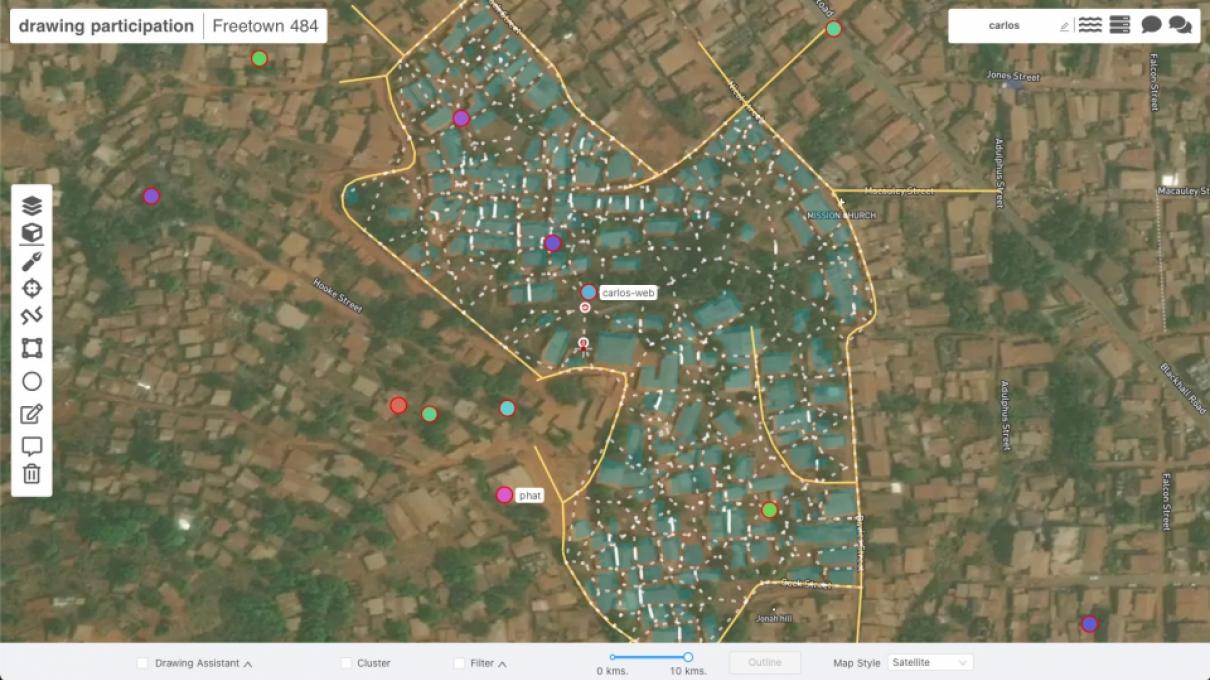Drawing Participation: Collectively Re-Blocking a Million Neighborhoods

Team: Nicholas de Monchaux, Carlos Sandoval Olascoaga, Luis Bettencourt
This research project explores the ways in which we can leverage computing to place participation at the center of our design strategies to collectively re-imagine informal communities as they plan for future growth and resilient urbanization. This is particularly relevant, as in the next 40 years we will build more urban fabric than we have in the whole of human history. This rapid urbanization is already occurring in most of the world informally and without the guidance of planners, architects, or scientists, further perpetuating existing structural inequities in our cities and social systems. These informal settlements are generally characterized by informal land tenure and unplanned land uses, which oftentimes results in lack of physical access to infrastructure and services, such as water and sanitation.
Reblocking is the process of formalizing land and parcel tenure and providing street access to each parcel and building in a neighborhood to facilitate the introduction of piped urban services such as water, sanitation, and gas. However, reblocking can be highly contentious due to the disruptive personal implications of the interventions, the lack of mechanisms to make sense of and synthesize multiple potential physical configurations, and the difficulty of coordinating numerous stakeholders with different cost/benefit tradeoffs. In this project we are building collaborative tools to help communities synthesize and evaluate algorithmically generated cadastral and reblocking proposals to co-design contextual and place based interventions. We will continue the development of a computational framework that will feature: first, new graphic interaction models to enable non-technical designers and community members to visualize, model, and calculate social and ecological impacts of algorithmically-generated reblocking interventions; second, data models and interfaces for real-time collaborative interaction that enable community-level data collection, advocacy, and co-design; and third, a computational framework to interactively and graphically synthesize data analytics and to provide heuristic feedback about the local, community, and regional trade-offs of reblocking interventions. We will work with community partners to deploy and test out the prototype in local governments and communities in Sub-Saharan Africa.
Image: Drawing Participation Software for Collaborative Re-blocking in Freetown, Sierra Leone (Credit: Carlos Sandoval Olascoaga with the Local Code Lab).
This research is funded by 2022 Norman B. Leventhal Center for Advanced Urbanism Seed Grant.


